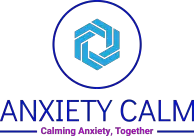Anxiety has a way of infiltrating every aspect of our lives, and sleep is no exception. It is fascinating to explore how anxiety impacts our sleep patterns, considering the intricate relationship between our mental and physical well-being. Understanding these effects can shed light on the importance of managing anxiety for a good night’s rest, ultimately improving our overall quality of life.
Physical Effects of Anxiety on Sleep Patterns
Increased Heart Rate
Anxiety can lead to an increased heart rate, which can significantly impact your sleep patterns. When you experience anxiety, your body releases stress hormones like cortisol, which can stimulate your heart and make it beat faster. This elevated heart rate can make it challenging to fall asleep and can even wake you up during the night, disrupting the quality of your sleep.
Muscle Tension
Another physical effect of anxiety on sleep patterns is muscle tension. Anxiety can cause your muscles to become tense and rigid, making it difficult to relax and fall asleep. This muscle tension can also lead to discomfort or even pain, further exacerbating sleep disturbances. It’s important to address muscle tension caused by anxiety to promote better sleep.
Gastrointestinal Disturbances
Anxiety can also have an impact on your gastrointestinal system, resulting in disturbances that can interfere with the quality of your sleep. When you are anxious, your body produces stress hormones that can affect the functioning of your digestive system, leading to symptoms such as stomachaches, nausea, or even diarrhea. These gastrointestinal disturbances can make it challenging to sleep peacefully throughout the night.
Hormonal Imbalance
Anxiety can disrupt the balance of hormones in your body, further contributing to sleep issues. When you experience chronic anxiety, your body can produce an excess of stress hormones that can interfere with the production of other essential hormones, such as melatonin, which regulates sleep. This hormonal imbalance can disrupt your sleep-wake cycle, making it difficult to fall asleep or stay asleep throughout the night.
Psychological Effects of Anxiety on Sleep Patterns
Racing Thoughts
One of the psychological effects of anxiety on sleep patterns is racing thoughts. When you’re feeling anxious, it’s common to have a mind filled with racing thoughts, worries, and negative thinking. These persistent thoughts can make it challenging to quiet your mind and relax, leading to difficulties falling asleep. Even if you do manage to fall asleep, racing thoughts can sometimes wake you up during the night, hindering the overall quality of your sleep.
Hyperarousal
Anxiety can also result in a state of hyperarousal, where you are constantly on high alert and experiencing heightened levels of alertness and vigilance. This hyperarousal can prevent your body and mind from entering a relaxed state necessary for sleep. As a result, you may find it difficult to wind down at night and struggle to fall asleep. Hyperarousal can also make it more likely to wake up frequently during the night.
Nightmares and Vivid Dreams
Anxiety can contribute to the occurrence of nightmares and vivid dreams, which can disrupt your sleep and leave you feeling restless and disturbed upon waking up. These dreams may be related to your anxieties or fears, and experiencing them can increase your anxiety levels, creating a vicious cycle. Nightmares and vivid dreams can cause sleep disruptions and lead to poor sleep quality overall.
Difficulty Falling Asleep or Staying Asleep
Perhaps the most apparent psychological effect of anxiety on sleep patterns is the difficulty of falling asleep or staying asleep. The combination of racing thoughts, hyperarousal, and heightened anxiety can create a perfect storm that prevents you from entering the sleep state. You may find yourself spending prolonged periods trying to fall asleep, only to feel frustrated and even more anxious. Additionally, anxiety can wake you up during the night, making it challenging to achieve restorative sleep.
Sleep Disorders Associated with Anxiety
Insomnia
Insomnia is a sleep disorder frequently associated with anxiety. It is characterized by difficulties falling asleep, staying asleep, or experiencing non-restorative sleep. Anxiety can make it challenging to relax and let go of racing thoughts, leading to insomnia. This sleep disorder can further exacerbate anxiety symptoms, creating a vicious cycle that affects your overall well-being.
Sleep Apnea
Anxiety can also contribute to the development or worsening of sleep apnea, a sleep disorder characterized by paused or shallow breathing during sleep. Anxiety can increase muscle tension in the throat and airways, making them more prone to collapsing during sleep and causing breathing interruptions. Sleep apnea not only disrupts sleep quality but can also lead to complications such as daytime fatigue and impaired cognitive function.
Restless Legs Syndrome
Restless Legs Syndrome (RLS) is a sleep disorder characterized by an uncontrollable urge to move the legs, often accompanied by uncomfortable or unpleasant sensations. Anxiety can intensify the symptoms of RLS, making it difficult to find relief and relax enough to fall asleep. The combination of anxiety and RLS can lead to long periods of restlessness and disturbed sleep.
Narcolepsy
Narcolepsy is a neurological disorder characterized by excessive daytime sleepiness and sudden episodes of sleep, often triggered by strong emotions such as anxiety. Anxiety can worsen the symptoms of narcolepsy, making it challenging to maintain a regular sleep-wake schedule and impacting the overall quality of your sleep.
Impact of Anxiety on Sleep Quality
Fragmented Sleep
Anxiety can result in fragmented sleep, where you experience multiple awakenings throughout the night. Whether it’s due to racing thoughts, nightmares, or physical discomfort, anxiety can cause you to wake up frequently, preventing you from achieving restorative sleep. Fragmented sleep can leave you feeling exhausted and groggy the next day, affecting your ability to function optimally.
Decreased REM Sleep
REM (rapid eye movement) sleep is a crucial stage of sleep associated with dreaming, memory consolidation, and emotional processing. Anxiety can reduce the amount of REM sleep you get, impacting your ability to process emotions effectively and negatively affecting your mood and overall well-being. Without sufficient REM sleep, you may experience increased anxiety levels and find it more challenging to cope with stressors in your daily life.
Reduced Sleep Efficiency
Anxiety can decrease sleep efficiency, which is the percentage of time spent asleep compared to the total time spent in bed. When you are anxious, it can take longer to fall asleep and lead to more frequent awakenings during the night. As a result, your sleep efficiency decreases, meaning that you spend a significant portion of time in bed awake rather than asleep. Reduced sleep efficiency can leave you feeling unrefreshed and fatigued even after spending adequate time in bed.
Anxiety Medications and Sleep Patterns
Sedatives and Hypnotics
Sedatives and hypnotics are a common class of medications prescribed for individuals experiencing anxiety and sleep difficulties. These medications work by promoting relaxation and inducing sleep. By targeting the central nervous system, sedatives and hypnotics can help calm the mind and relax the body, making it easier to fall asleep and stay asleep. However, it’s important to use these medications under the guidance of a healthcare professional to minimize potential side effects and dependence.
Antidepressants
Antidepressants are often prescribed to individuals with anxiety disorders, as they can help regulate mood and reduce anxiety symptoms. Some types of antidepressants, such as selective serotonin reuptake inhibitors (SSRIs), can also have mild sedative effects, making them helpful in improving sleep patterns. However, the impact of antidepressants on sleep can vary from person to person, and it’s essential to discuss any concerns or side effects with your healthcare provider.
Anxiolytics
Anxiolytics are medications specifically designed to reduce anxiety symptoms. These medications work by targeting the neurotransmitters in the brain responsible for anxiety. While anxiolytics can help alleviate anxiety and promote relaxation, they may also have sedating effects that can aid in improving sleep patterns. It’s crucial to follow the prescribed dosage and consult with your healthcare provider to ensure the safe and effective use of anxiolytics.
Cognitive-Behavioral Therapy for Anxiety and Sleep
Stimulus Control Therapy
Stimulus control therapy is a behavioral technique used to address sleep difficulties caused by anxiety. It involves establishing a consistent sleep routine and associating the bed and bedroom solely with sleep and intimacy. By creating a strong association between the bed and sleep, stimulus control therapy can help reduce anxiety-related sleep disturbances and improve sleep quality.
Relaxation Techniques
Relaxation techniques, such as deep breathing exercises, progressive muscle relaxation, and mindfulness meditation, can be effective in managing anxiety and promoting better sleep. These techniques help activate the body’s relaxation response, counteracting the physiological arousal associated with anxiety. By practicing relaxation techniques before bed, you can calm your mind and body and prepare for a restful night’s sleep.
Sleep Restriction Therapy
Sleep restriction therapy involves limiting the amount of time spent in bed to match your actual sleep duration. This technique aims to consolidate sleep and improve sleep efficiency. By restricting time spent in bed to only the hours necessary for sleep, you can help regulate your sleep-wake cycle and reduce the anxiety associated with prolonged wakefulness in bed.
Cognitive Restructuring
Cognitive restructuring is a therapeutic approach that focuses on identifying and challenging negative or irrational thoughts associated with anxiety. By replacing these thoughts with more positive and realistic ones, cognitive restructuring can help alleviate anxiety symptoms and improve sleep. This technique can help reframe anxious thoughts and promote a more positive mindset, creating a conducive environment for better sleep.
Lifestyle Changes to Manage Anxiety-Related Sleep Problems
Establishing a Bedtime Routine
Establishing a consistent bedtime routine can help signal to your body and mind that it’s time to wind down and prepare for sleep. Your routine can include activities such as taking a warm bath, reading a book, or engaging in relaxation exercises. By following a regular bedtime routine, you can promote relaxation and create a predictable sleep schedule that improves sleep quality.
Creating a Sleep-Friendly Environment
Creating a sleep-friendly environment involves optimizing your bedroom for optimal sleep. Ensure your bedroom is cool, dark, and quiet, as these conditions can promote a restful sleep environment. Consider investing in blackout curtains, earplugs, or a white noise machine to block out any distractions that may interfere with your sleep.
Regular Exercise and Physical Activity
Engaging in regular exercise and physical activity can be beneficial for managing anxiety-related sleep problems. Exercise helps release endorphins, which are natural mood-boosting chemicals that can reduce anxiety symptoms. By incorporating regular exercise into your routine, you can promote better sleep quality and decrease anxiety levels.
Stress Management Techniques
Stress management techniques, such as deep breathing exercises, journaling, or engaging in hobbies, can help reduce anxiety and improve sleep. These techniques provide a healthy way to cope with stress and can help calm your mind before bed, allowing for a smoother transition into a restful sleep.
The Role of Sleep Hygiene in Anxiety Management
Maintaining a Consistent Sleep Schedule
Maintaining a consistent sleep schedule is crucial for managing anxiety-related sleep problems. Try to go to bed and wake up at the same time every day, even on weekends. Consistency helps regulate your internal clock and reinforces a healthy sleep-wake cycle. By sticking to a regular sleep schedule, you can improve sleep quality and reduce anxiety symptoms.
Avoiding Stimulants and Substance Use
Stimulants such as caffeine, nicotine, and alcohol can interfere with sleep quality and exacerbate anxiety symptoms. It’s essential to avoid consuming these substances close to bedtime as they can disrupt your ability to fall asleep and negatively impact the overall quality of your sleep. Opting for calming herbal teas or non-caffeinated beverages can be beneficial in managing anxiety-related sleep problems.
Creating a Calming Bedroom Atmosphere
Creating a calming bedroom atmosphere can greatly contribute to managing anxiety-related sleep problems. By reducing clutter, creating a comfortable sleep environment, and incorporating soothing elements such as aromatherapy, you can promote relaxation and prepare your mind and body for a restful night’s sleep. Experiment with calming scents such as lavender or chamomile to create a peaceful ambiance in your bedroom.
Limiting Screen Time Before Bed
The blue light emitted by electronic devices such as smartphones, tablets, and computers can interfere with sleep by suppressing the production of melatonin, the hormone that regulates sleep. Limiting screen time before bed and establishing a “digital curfew” can help promote better sleep. Instead, engage in relaxing activities such as reading a book or listening to calming music to unwind before sleep.
Seeking Professional Help for Anxiety and Sleep Issues
Consulting a Mental Health Professional
If anxiety-related sleep problems persist despite lifestyle changes and self-help efforts, it may be beneficial to consult a mental health professional. They can provide a comprehensive assessment of your anxiety symptoms and design an individualized treatment plan to address both anxiety and sleep-related issues. Mental health professionals can offer evidence-based therapies to help manage anxiety, such as cognitive-behavioral therapy (CBT), and provide support tailored to your specific needs.
Sleep Studies and Diagnostic Assessments
For individuals experiencing severe sleep disturbances or suspected sleep disorders, sleep studies and diagnostic assessments may be necessary. Sleep studies involve monitoring various physiological parameters during sleep to identify potential underlying causes of sleep problems. These assessments can provide valuable insights into the nature of your sleep disturbances, helping guide appropriate treatment interventions.
Individualized Treatment Plans
Based on the assessment and diagnosis, mental health professionals can develop individualized treatment plans that address both anxiety and sleep issues. These plans may include a combination of therapy techniques, medication management, and lifestyle modifications to target the specific needs and goals of each individual. By working closely with a mental health professional, you can receive tailored guidance and support to effectively manage anxiety-related sleep problems.
Effects of Improved Sleep on Anxiety Management
Reduced Anxiety Symptoms
One of the significant benefits of improving sleep quality is a reduction in anxiety symptoms. When you consistently get restful and sufficient sleep, you provide your body and mind with the opportunity to recover and recharge. This leads to decreased levels of stress hormones and a more balanced emotional state, contributing to a reduction in anxiety symptoms.
Improved Cognitive Function
Quality sleep is essential for optimal cognitive function, including memory, attention, concentration, and problem-solving skills. By improving sleep patterns, you enhance your cognitive abilities, making it easier to cope with daily challenges. Better cognitive function can also help break the cycle of anxious thinking and lead to a more positive and productive mindset.
Enhanced Emotional Well-being
Improved sleep has a positive impact on emotional well-being. By consistently getting adequate sleep, you enhance your ability to regulate emotions and maintain a stable mood. Quality sleep allows you to approach daily stressors with a clearer and more rational mindset, reducing anxiety and promoting emotional well-being.
In conclusion, anxiety can have profound effects on sleep patterns, both physically and psychologically. It can lead to increased heart rate, muscle tension, gastrointestinal disturbances, and hormonal imbalances. On a psychological level, anxiety can cause racing thoughts, hyperarousal, nightmares, and difficulty falling asleep or staying asleep. Sleep disorders commonly associated with anxiety include insomnia, sleep apnea, restless legs syndrome, and narcolepsy. Anxiety can have a significant impact on sleep quality, resulting in fragmented sleep, decreased REM sleep, and reduced sleep efficiency.
There are various approaches to managing anxiety-related sleep problems, including medication options like sedatives, hypnotics, antidepressants, and anxiolytics. However, non-pharmacological interventions such as cognitive-behavioral therapy (CBT) can also be highly effective. Lifestyle changes like establishing a bedtime routine, creating a sleep-friendly environment, regular exercise, and stress management techniques are essential in managing anxiety-related sleep issues. Practicing good sleep hygiene, including maintaining a consistent sleep schedule, avoiding stimulants and substance use, creating a calming bedroom atmosphere, and limiting screen time before bed, also plays a vital role.
Seeking professional help from mental health professionals is crucial for individuals experiencing persistent anxiety-related sleep problems. Consulting a mental health professional can lead to proper diagnoses, individualized treatment plans, and therapeutic interventions such as CBT. Sleep studies and diagnostic assessments may be necessary to identify and address any underlying sleep disorders.
The positive effects of improved sleep on anxiety management are numerous. Quality sleep can lead to reduced anxiety symptoms, improved cognitive function, and enhanced emotional well-being. By prioritizing sleep and implementing strategies to improve sleep quality, individuals can effectively manage anxiety and experience a better overall quality of life.


